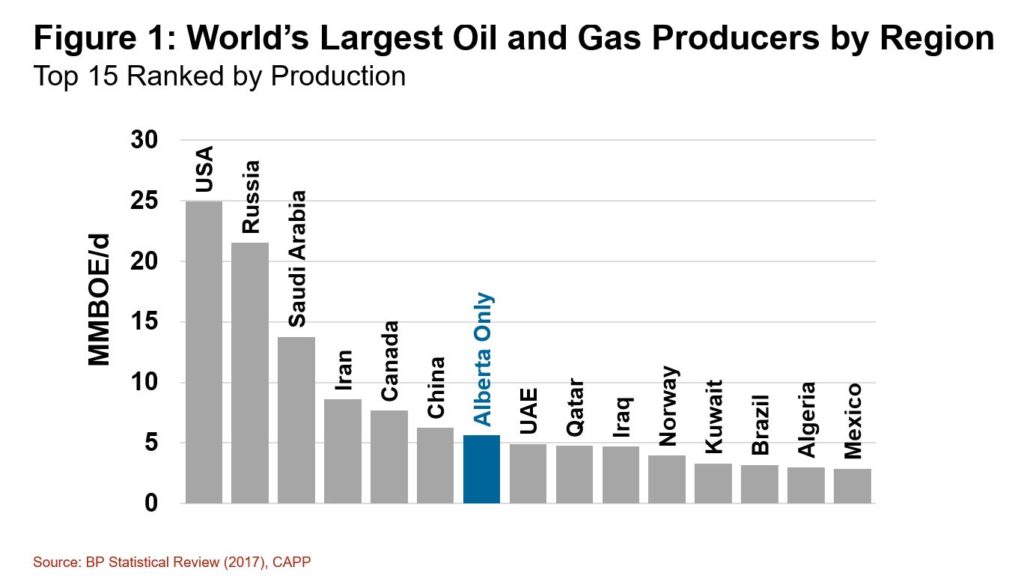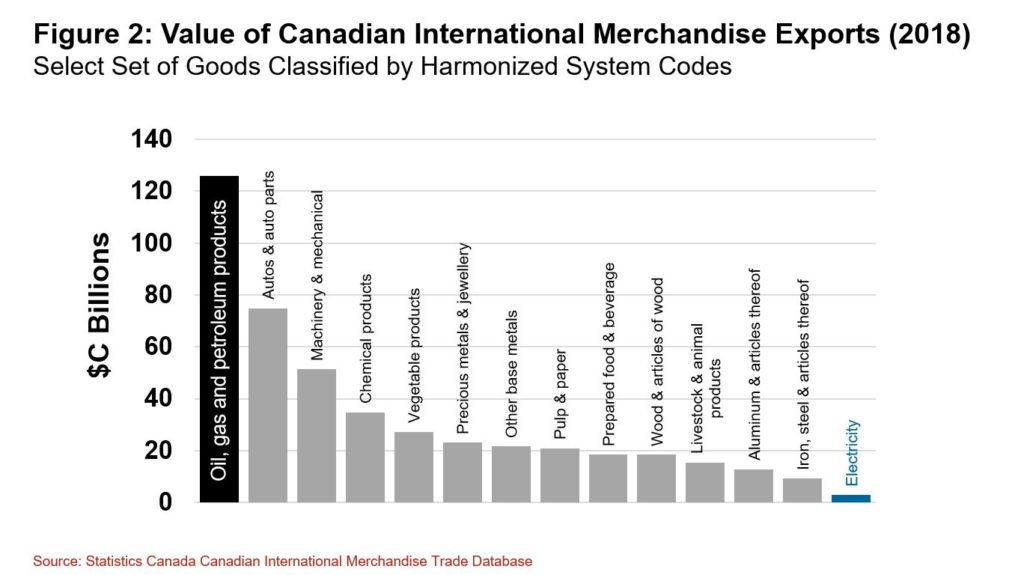
Jason Kenney has taken over the keys to Alberta’s hydrocarbon pump house. Within those borders, the province’s new premier leads the interests of the world’s sixth largest producer of oil and natural gas combined. That’s big.

Producing over 5.6 million barrels of oil equivalent per day, only slightly behind China, Alberta is consequential to the world’s energy needs, not just Canada.
Policy matters, as they say in politics. Policy plus scale puts Kenney’s threat of turning down the oil valve to British Columbia — an inconsequential consumer on a world scale — in perspective. A quarter twist in Edmonton is all that’s needed to influence coastal petroleum prices big time.
Relevance is not just about volume of output. Alberta’s product diversity is unique among the top three producers, the United States, Russia and Saudi Arabia. Yes, they’re big, but none of them have the full spectrum of hydrocarbon output, from dry natural gas, to condensates, light and medium oils, heavy oils through to oilsands. This product diversity makes Alberta robust in serving many market segments, responding to shifts in demand for petrochemical feedstocks and fuels that are refined across North America.
Despite Alberta’s significance, Canada is polarized in its attitudes towards hydrocarbons; that’s an understatement and an entirely contentious subject on its own.
However, there prevails a notion that our country can do without Alberta’s oil and gas industry, a sense that an imminent demise can easily be replaced by other sources of commerce – for example, selling more clean electricity to ourselves and our neighbour. Scale says otherwise.
Statistics Canada recently reported the value of all exports for 2018, by economic sector. Last year, Canadian exports of petroleum products topped $125 billion. That’s 65 per cent more than autos and nearly triple that of base metals, which is the closest resource-based comparable. From an energy lens, oil and gas exports dwarf electricity sales to the U.S., a mere $3 billion last year.

There is no way that Canada’s economy can replace even a partial loss of its oil and gas industry without significant cross-country repercussions to its economy. For example, a key indicator like Canada’s relatively small and manageable $2.9 billion trade deficit would grow faster than a party balloon.
Kenney has taken a decidedly pro-oil-and-gas stance, with no apologies. Nor should he seek contrition in a province where over 100,000 jobs are directly tied to its $100-billion-plus-a-year industry. That doesn’t include all the jobs (like mine) that are peripheral to the industry.
We know from the Alberta election that the United Conservative Party’s (UCP) policy positions on things like regulatory reform, pipelines, taxation, production curtailment, Bills C-48, C-69, and so on have been accompanied with much conviction and bravado. None of it should be dismissed. Policy will matter with the new provincial government, because in Alberta it’s backed up by influence on a global scale.
Peter Tertzakian is Executive Director of the ARC Energy Research Institute in Calgary, Alberta.
You can read more of the news on source
